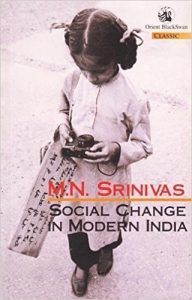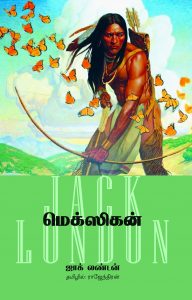Director Hu Bo’s debut feature film, ‘An Elephant Sitting Still’, is stupendous because of its enormous ambition that offers us a unique opportunity to meditate on the perpetual search for the meaning of life. The four-hour movie, following the course of inter-linked events taking place in 24 hours or less, unfolds the story of four characters who are pushed into their entrenchments. Simple choice of framing, uncompromising from one end to the other end of the film, makes it possible for us to experience all the burden of the cultural and political constraints that weigh on the Chinese in a diffuse but incredible way. In fact, the camera goes off on a long fixed shot for most of the time, shadowing the propensity of the protagonists to be placed in untenable situations. We could also sense an ingenious novelty in the portrayal of indissociable characters, never taking their autonomy from their environment.

The film begins with a voice-over wondering about an elephant in Manzhouli which is just sitting still even when people stab it with forks. It doesn’t care about the petty things happening around and is enjoying its stillness to the fullest extent. Of course, the ‘elephant’ is a metaphor. Whether we retaliate or not, a perfect fusion between an incoherent universe and the ubiquitous uncomfortable elements of daily life is almost impossible. This devastated thought sickens our mind and all our efforts to tie up the loose ends go in vain. The strange reality squeaks in our dreams, disturbs our inner-peace and questions the very purpose of our existence.
This is a film that fascinates us with a very particular rhythm, maybe because of its slowness, and the atmosphere of each scene is depicted with poetic sense. Images of the dysfunctional world and limited sound are combined very carefully to constitute a full-fledged ambiance capable of passing on the anguish. There are very few dialogues, strange at times, reflecting the emptiness of a simple life. (“The World is a wasteland”) All these elements reminded me of the films of the Hungarian master, Bela Tarr! And this is undoubtedly a masterpiece that will last forever.

A hypnotic effect is produced as the main characters constantly repeat the same movements and the sidelined characters are always captured in shallow focus. There is a determined motive behind the making of this film and it is revealed directly via already known yet impressive perception of life. When Zhang Yu says, “You can go wherever you want. However, you will find nothing different. I learned this when I’ve wasted most of my life away. You could sugar-coat it by telling yourself that there must be a difference on the other side. But there isn’t”, we could relate it to the final moments of the director who committed suicide just after completing the film. This monumental work does not just hover over philosophical connotations that emphasize the emptiness. The elephant that was sitting still trumpets at last. There is still hope!

Well, we have stepped into another year and it is high time to list out the best films released in 2018. I haven’t watched some of the critically acclaimed movies, for instance – Yorgos Lanthimos’ ‘The Favourite’, as they were neither released in our country nor available online. Strictly in Order! 1. The Wild Pear Tree 2. They Shall not grow Old 3. An Elephant Sitting Still 4. Cold War 5. 3 Days in Quiberon 6. Aga 7. Birds of Passage 8. Shoplifters 9. Eighth Grade 10. First Reformed

They Shall not grow Old, 2018
M.N. Srinivas’ ‘Social Change in Modern India’ comprises of four lectures delivered at the University of California in Berkeley and an essay titled “Some thoughts on the study of one’s own society”. The difficulties of external change go hand in hand with the complexities of cultures in the social field. With the help of several examples, Srinivas adopts a convincing methodology to converge upon an ethno-historical approach centered on the question of social change and the actors in the change. The conflict between the old institutional order and the emerging new values is studied in an elaborate manner accompanied by the author’s profound insight.

Srinivas states that two castes claiming superiority over one another should not be regarded as exceptional in their behavior but as the typical product of a dynamic system in which there is some pushing and jostling in the attempt to get ahead. However, his take on Sanskritization and Westernization seems to be dubious. The author himself confesses that ‘being a Brahmin’ has influenced his observations and understanding of the dynamic relationship between the two and other counteracting processes. In a review by E.R. Leach, the writer’s “Brahminocentric” point of view has been firmly questioned. “If Professor Srinivas had been of Shudhra origin, Would this have colored his interpretation?” Srinivas calls for a debate and explains his motifs. He acknowledges the need to suspect the hidden agenda, if any, behind every sociologist so that anybody shall not regard themselves as infallible. An interesting read!

The minutiae of everyday life is well constructed in the stories of Lydia Davis. Her life is her first source of inspiration. It could be either the soliloquy of working women or furtive glances of modernity. The ethical force of the characters in the face of dramas or accidents of life is associated with the fragility of consciences. The sense about existence of the part of the humanity within us confronts the distinct feeling towards opacity of the world. Lydia’s stories range from a few lines to a few pages, mastering the art of subtlety. They are complex and rich in potentiality, exploring the prospect of life that is disappearing. One of the brilliant American storytellers of our time!

1897ம் ஆண்டு அலாஸ்காவில் தங்கம் கண்டுபிடிக்கப்படுகிறது. அதன் சுரங்கங்களில் உழைத்துப் பொருளீட்டும் பொருட்டோ வாழ்வோட்டத்தின் பொருளாதாரத் தேக்கத்தை தங்கம் துரிதகதியில் புரட்டிப் போடும் என்பது போன்ற பேராசைக் கனவுகளின் மாய இலயிப்பிலோ கிளான்டிக் பகுதியை நோக்கி இலட்சம் மனிதர்கள் படையெடுத்தார்கள். கடுங்குளிரும் பெரும்பசியும் வாட்டியெடுக்கும் பயணம். பலர் பாதியிலேயே செத்துப் போனார்கள். சேருமிடம் சேர்ந்தவர்களும் தம்மையே பலி கொடுத்து தங்கத்தைப் பெற வேண்டிய அவலச் சூழல். சலிப்பும் வாதையும் நீடித்து நிலையூன்றி அனுதினமும் அழுத்தங்கூட்டும் நெருக்கடிகள். மீளவே முடியாத அப்படுகுழியில் இருந்து மீண்டெழுந்து வெறுங்கையுடன் ஊர் திரும்பிய சொற்ப நபர்களுள் ஜாக் லண்டனும் ஒருவர்.
உடலிலும் உள்ளத்திலும் அக்கொடும்பயணம் ஏற்படுத்திய பாதிப்புகள் அவரது வாழ்நாள் முழுவதும் தொடர்ந்து வதைத்து அமைதியிழப்பையும் தீராத சோர்வையும் ஏற்படுத்தின. கவலையின்றிக் கலை இல்லை. உள்ளுள் விகசித்த பெருங்கூச்சல்களுடனான ஓயாத சமரிலேயே அவர் தனக்கான படைப்பூக்கத்தைக் கண்டடைந்தார் எனலாம். இந்த ‘கோல்ட் ரஷ்’ பற்றி அக்காலக்கட்டத்து அமெரிக்கக் கலைஞர்கள் அனைவருமே கசப்புடன் எதிர்வினையாற்றி இருக்கிறார்கள். நம்மில் பலருக்கு சார்லி சாப்ளினின் புகழ்பெற்ற திரைப்படம் சட்டென்று நினைவுக்கு வரக்கூடும். ஆச்சரியப்படத்தக்க வகையில், பிறரைப் போல வலியிலிருந்து விலகி நின்று அதன் சிக்கல்களை ஜாக் லண்டன் விவாதிப்பதில்லை. மனிதர்களை வேடிக்கைப் பொருளாக்கி அவர்தம் பலவீனங்களை பகடி செய்வதுமில்லை. மாறாக, வலியுடனான சமரசத்தில் உக்கிரங்கொள்ளும் அகங்கார உரசல்களையும் முரண்படும் விழுமியங்களையும் கவனப்படுத்துகிறார்.
ஜாக் லண்டனின் வாழ்வில் பல அபூர்வ தருணங்கள் உண்டு. கருவில் இருந்த லண்டனை கருக்கலைப்பு செய்ய அவரது தாயார் ஃப்ளோரா வெல்மேன் மறுத்ததால் குடும்பத்தை அநாதரவாக விட்டு விட்டு, தந்தை வெளியேறி விடுகிறார். அதற்கான எதிர்வினையாகவும் மன உளைச்சலினாலும் தற்கொலைக்கு முயன்ற ஃப்ளோரா காப்பற்றப்படுகிறார். ஜாக் லண்டன் பிறந்த பிறகு அவர் இன்னொரு திருமணமும் செய்து கொள்கிறார். வறுமையில் உழன்ற இளமைக் காலம். பொது நூலகங்களிலேயே பழியாகக் கிடந்து சுயமாகக் கற்றுத் தேர்ந்தார். எண்ணற்ற கூலி வேலைகள் பார்த்தார். நீண்ட நேர உடல் உழைப்பைக் கோரி குறைவான ஊதியம் பெற்றுத் தரும் ‘தொழிற்புரட்சி’ காலக்கட்டம். புறச்சூழல் மீதான வெறுப்பும் கோபமும் கொப்பளிக்க, முந்நூறு டாலர்களுக்கு ஒரு படகைச் சொந்தமாக்கி சிப்பிக் கொள்ளையனாகத் திட்டமிட்டார். ஜப்பான் கரையோரப் புயலில் சிக்கி உயிர் தப்பினார். சாகச வாழ்வு மீதான கவர்ச்சிகள் தான் மீட்புக்கான பாதையைக் கண்டடைகின்றன போலும். சூன்ய வாழ்வைப் புறக்கணித்து தப்பியோடுவதற்கான யத்தனங்கள் யாவும் அவருக்குப் புதிய பிடிமானத்தை அளித்தன.
எது குறித்தும் அலட்டிக்கொள்ளாத சுபாவம். நிலையற்றுத் திரிந்தழியும் பற்றற்ற பார்வைக் கோணம். அனுபவமெனும் தங்கப் புதையலில் தன்னைப் புடம் போட்டுப் பொலிந்த ஆழ் உறைப் பெட்டகம். தனது பதினெட்டாவது வயதில், அரசுக்கெதிரான பேரணியில் கலந்து கொண்டு கோஷமிட்டபடியே வாஷிங்டனை நோக்கி ஊர்வலமும் சென்றிருக்கிறார். எத்தகைய வசீகரமும் விரைவிலேயே பொலிவிழந்து தள்ளாடுவதைக் கண்டு குதூகலிக்கும் தனது பிரத்யேக ஸ்திரமற்ற இயல்பினால், பாதியிலேயே பேரணியில் இருந்து நழுவி சிகாகோவிற்குப் பயணமானார். பின்னர், நயாகரா நீர்வீழ்ச்சியைக் காண முடிவெடுத்து கனடா எல்லையைக் கடக்க முயன்றதால் பிடிபட்டு சிறையில் அடைக்கப்பட்டார். முப்பது நாட்கள் சிறைவாசம் முடித்து மீண்டும் கலிஃபோர்னியாவிற்குத் திரும்பினார். பல வருடங்களுக்குப் பிறகே, லண்டனுக்குத் தனது உயிரியல் தந்தை குறித்த உண்மை தெரிய வருகிறது. அவரைத் தேடிக் கண்டுபிடித்து கடிதம் எழுதுகிறார். ஆனால் அவரது தந்தையோ, அந்தச் சமயத்தில், தான் தற்காலிக ஆண்மையின்மையினால் பாதிக்கப்பட்டிருந்ததாகவும் தான் லண்டனின் தந்தையாக இருக்க வாய்ப்பே இல்லை என்றும் பொய்யுரைத்து லண்டனை ஏற்க மறுதலித்து விடுகிறார். லண்டனின் தந்தைக்கு மொத்தம் ஆறு மனைவிகள்!
சூறாவளிப் புயலில் சிக்குண்ட அனுபவத்தைப் பற்றி எழுதியதே லண்டனின் முதற்கதை என ஆய்வாளர்கள் ஊகிக்கிறார்கள். 197 சிறுகதைகளும் 23 நாவல்களும் எழுதியிருக்கிறார். இவை போக நிறைய நாடகங்களையும் அபுனைவுக் கட்டுரைகளையும் நினைவேக்கக் குறிப்புகளையும் ஏராளமான கவிதைகளையும் எழுதிக் குவித்திருக்கிறார். தினசரி ஆயிரம் வார்த்தைகளையாவது எழுதி விட வேண்டும் என்கிற இலட்சிய முனைப்புடனும் அதி தீவிரத்துடனும் அவர் தொடர்ந்து செயலாற்றிய பதினெட்டு ஆண்டுகளை நினைத்தாலே பிரமிப்பாக இருக்கிறது. ஒரு நாளைக்கு நான்கு அல்லது ஐந்து மணி நேர உறக்கம் போதும். பத்திரிக்கைகளின் விருப்பத்திற்கிணங்கி அதனதன் தேவைக்கேற்ப எழுதிக் கொடுத்து விடுவார். ‘நான் பணத்திற்காக மட்டுமே எழுதுகிறேன்’ என்று பகிரங்கமாகவே அறிவித்துக் கொண்டவர். ஒரு வார்த்தைக்கு மூன்று சென்டுகள். வெகு விரைவிலேயே அவர் அமெரிக்கா முழுக்கப் பிரபலமானார். The Call of the Wild நாவலின் முதற்பதிப்பு வெளியான தினத்தன்றே பத்தாயிரம் பிரதிகள் விற்றுத் தீர்ந்தது. இதுகாறும் ஜாக் லண்டனின் கதைகள் அறுபதுக்கும் மேற்பட்ட மொழிகளில் மொழியாக்கம் செய்யப்பட்டுள்ளன. இன்று அவற்றை வாசிக்கையில், எப்போதும் கடிகார முள்ளின் விரட்டலில் செயல்பட்டவர் தன் எழுத்தின் தரத்தில் மேலதிக சமரசங்களுக்கு இணங்கிச் சுணங்கவில்லை என்றே தோன்றுகிறது.
லண்டனின் புகழ்பெற்ற நான்கு முக்கியமான கதைகள் இத்தொகுப்பில் இடம்பெற்றுள்ளன. தீ வளர்க்க, முதியோர் சாசனம், சிறிதளவு இறைச்சி, மெக்ஸிகன். லண்டனின் பார்வை என்பது ‘உலகம் என்பது வலியோர் மாட்டே’ எனும் பழங்குடி மரபை ஒத்தது. வலியது வெல்லும். அவ்வளவு தான். அதில் பலவீனர்களுக்கு இடமில்லை. அவரது படைப்புலகத்தில் விரல் விட்டு எண்ணிவிடக் கூடிய அளவிலான மிகக் குறைவான பெண் கதாபாத்திரங்களே இடம்பெற்றிருக்கிறார்கள். ஏனெனில், தன் அனுபவ நிழலில் பொதிந்திருப்பதை வெளிக்கொணர, மனோ திடத்துடனும் அபாரமான பேயாற்றலுடனும் புதிய சவால்களைச் சந்திக்கும் ஆண்களே லண்டனுக்கு அவசியமானவர்களாகிறார்கள். சுய மைய நோக்குடையவர்கள். நவீன வாழ்வின் நாசூக்கிற்கும் விதிமுறைகளுக்கும் ஒப்புக் கொடுக்காதவர்கள். பல்வேறு மனக்கணக்குகள் வழி இயங்கிக் கொண்டிருக்கும் குரூர உலகின் ஆட்ட விதிகளுக்கேற்ப வளைந்து கொடுத்து பங்கேற்கத் தயங்கி துண்டித்துக் கொள்பவர்கள். தம் ஆதிமனத்தின் மூர்க்கத்துடன் முட்டி மோதி வீழ்ந்து ஆற்றாமையுடன் குமுறுகிறவர்கள்.
ஜாக் லண்டனின் குத்துச்சண்டைக் கதைகள் மட்டும் அடங்கிய நூல் தனித்தொகுப்பாக வெளிவந்துள்ளது. இரண்டு தனி மனிதர்கள் மோதிக் கொள்ளும் ஒற்றைக் களத்தை மையமிட்டு பல நூறு சித்திரங்களை வளர்த்தெடுக்கும் கற்பனை வளம் மிகுந்தவர். மனித ஆற்றல் முழு உத்வேகத்துடன் உருப்பெறும் கணங்கள் மீது வற்றாத மோகம் கொண்டவர். சிறிதும் சலிப்பின்றி, அவர் மீண்டும் மீண்டும் அவற்றையே எழுதினார். எதிர்ச்சக்தியுடனான உயிர்ப் பணயப் போராட்டத்தின் முடிவில் புத்துயிர் பூணும் வாழ்வு அல்லது இனி ஒருபோதும் மீண்டெழவியலாத வீழ்ச்சி. இத்தகைய இருமையை உத்தேசித்து நகர்த்தப்படும் நேர்க்கோட்டுக் கதைகள். விரிவான புறச்சசூழல் விவரிப்புகளின் ஊடாக கதாபாத்திரங்களின் எண்ணவோட்டமும் துல்லியமாக இடைவெட்டி விழுந்த வண்ணம் உள்ளது. ஒவ்வொரு அசைவும் எண்ணமும் பல்கிப் பெருகி பேருருவுடன் திரண்டெழுந்து அச்சறுத்தும் உலகில் அதீத வேட்கை கொண்ட தனி நபர்கள் தனித்து விடப்படுகிறார்கள். தீப்பற்றி எரியும் காட்டின் நடுவே பிளிறும் மதங்கொண்ட ஒற்றை யானை. உள்ளீடுகள் ஏதுமற்ற நடையில் நம்மை நேரடியாகவே ஓர் உச்சக்கட்ட நாடகீய மோதலுக்குத் தயார்படுத்தி விடுகிறார். மேலெழுந்து திமிறும் உணர்வலைகளை வீரியங்கொண்டணுகிப் புனைவாக்குகிறார்.
மூலக் கதையிலுள்ள விரைவுக்கும் சொற்தேர்வுக்கும் சற்றும் சளைத்ததல்ல ராஜேந்திரனின் மொழிபெயர்ப்பு. கதையின் உணர்ச்சிப் பெருக்குடன் நம்மை எளிதாகப் பிணைத்துக் கொள்ள முடிகிறது. ‘விநாடிகளை எண்ணுங்கள்’ என நடுவரை நோக்கி மெக்ஸிகன் கர்ஜிக்கும் போது நமக்குப் புல்லரிக்கிறது. குத்துச்சண்டை மேடையின் வளையத்தைச் சுற்றி அமர்ந்திருக்கும் அற்ப மனிதர்களை நாமும் வெறுப்புடன் நோக்குகிறோம். அது எல்லைகளைக் கடந்து மனங்களை ஒன்றிணைக்கும் கலையின் ஈடில்லா வெற்றியே தான்.
Citations:
- https://www.britannica.com/biography/Jack-London
- https://www.smithsonianmag.com/smithsonian-institution/short-heroic-rags-riches-life-jack-london-180961200/
